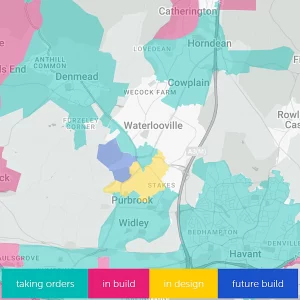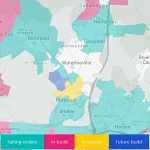Sponsored Links
Internet Overshadows TV In Popularity
Posted: 02nd Jun, 2004 By: MarkJ
A BT sponsored poll of LBC radio (97.3 FM) listeners found that 78% would rather give up their TV's than lose an Internet connection:
INTERNET BEATS TV HANDS DOWN IN POPULARITY STAKES
This is according to a poll of LBC radio, 97.3 FM listeners in association BT Retail. Over a two week period, listeners to The Gadget Detective hosted by Fevzi Turkalp were asked to vote on what they would rather give up - their TV or their internet connection.
78 per cent of listeners said that they would rather give up their TVs; only 22 per cent said they would rather lose their internet connection.
The finding from LBC backs up BT research from NOP which found that the average person spends 3.5 hours per day on the internet compared to 2.8 hours watching TV. Nearly half of those surveyed by NOP believed that the internet, not TV, provided better quality news and entertainment.
Duncan Ingram, managing director, BT Openworld, said: The internet experience, particularly broadband, simply offers more possibilities than that currently offered by TV. For example, the ability to research, learn, meet new communities, play games and download music, video and films, all at the click of a mouse puts the user, not the medium, in control. Broadband essentially has the capability to fulfill all your communication and entertainment needs in one, which also, of course, has cost saving implications.
There is also the fact that broadband has developed significantly in a relatively short amount of time. Initiatives such as flexible bandwidth, the ability to provide and share content much more easily, and personalised radio via the PC to name just a few, all mean that it is the internet, not TV, which is increasing being seen as the must-have. Put simply, many consumers feel that they would be giving up more if they gave up their internet connection.
Commenting on the results, LBC radios consumer technology expert Fevzi Turkalp - The Gadget Detective - said that he didnt find the results surprising, adding: With the ever growing popularity of broadband internet access, users are increasingly using their home computers as home entertainment centres. With increased take up and faster speeds, this trend can only continue.
INTERNET BEATS TV HANDS DOWN IN POPULARITY STAKES
This is according to a poll of LBC radio, 97.3 FM listeners in association BT Retail. Over a two week period, listeners to The Gadget Detective hosted by Fevzi Turkalp were asked to vote on what they would rather give up - their TV or their internet connection.
78 per cent of listeners said that they would rather give up their TVs; only 22 per cent said they would rather lose their internet connection.
The finding from LBC backs up BT research from NOP which found that the average person spends 3.5 hours per day on the internet compared to 2.8 hours watching TV. Nearly half of those surveyed by NOP believed that the internet, not TV, provided better quality news and entertainment.
Duncan Ingram, managing director, BT Openworld, said: The internet experience, particularly broadband, simply offers more possibilities than that currently offered by TV. For example, the ability to research, learn, meet new communities, play games and download music, video and films, all at the click of a mouse puts the user, not the medium, in control. Broadband essentially has the capability to fulfill all your communication and entertainment needs in one, which also, of course, has cost saving implications.
There is also the fact that broadband has developed significantly in a relatively short amount of time. Initiatives such as flexible bandwidth, the ability to provide and share content much more easily, and personalised radio via the PC to name just a few, all mean that it is the internet, not TV, which is increasing being seen as the must-have. Put simply, many consumers feel that they would be giving up more if they gave up their internet connection.
Commenting on the results, LBC radios consumer technology expert Fevzi Turkalp - The Gadget Detective - said that he didnt find the results surprising, adding: With the ever growing popularity of broadband internet access, users are increasingly using their home computers as home entertainment centres. With increased take up and faster speeds, this trend can only continue.
Search ISP News
Search ISP Listings
Search ISP Reviews
Latest UK ISP News








Cheap BIG ISPs for 100Mbps+
150,000+ Customers | View More ISPs
Cheapest ISPs for 100Mbps+
Modest Availability | View More ISPs
Latest UK ISP News
Helpful ISP Guides and Tips
Sponsored Links
The Top 15 Category Tags
- FTTP (6798)
- BT (3881)
- Politics (3074)
- Business (2766)
- Openreach (2663)
- Building Digital UK (2512)
- Mobile Broadband (2475)
- FTTC (2142)
- Statistics (2127)
- 4G (2092)
- Virgin Media (2024)
- Ofcom Regulation (1779)
- 5G (1732)
- Fibre Optic (1604)
- Wireless Internet (1595)
Sponsored
Copyright © 1999 to Present - ISPreview.co.uk - All Rights Reserved - Terms , Privacy and Cookie Policy , Links , Website Rules































